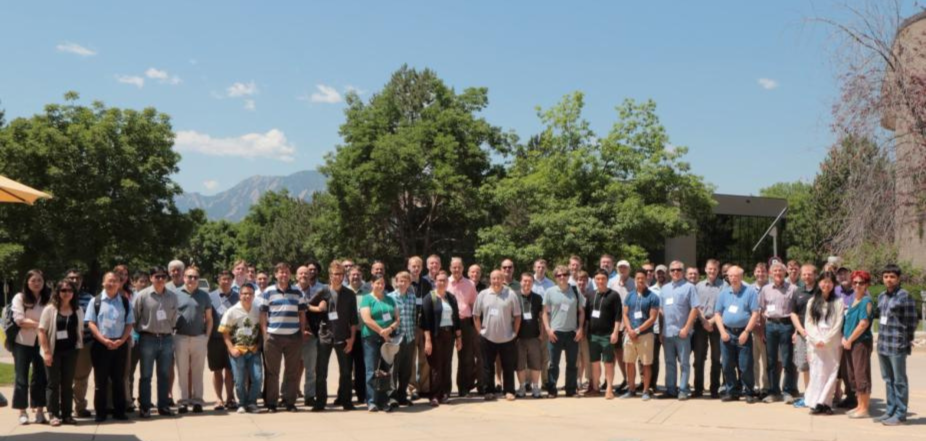Community Engagement

NSF Unidata is a diverse community of education and research institutions vested in the common goal of sharing data, tools to access the data, and software to analyze and visualize the data. Program staff work with community members in a wide variety of ways, seeking to build connections that allow us to share resources and discover new things about the Earth System.
Collaborative Activities
The NSF Unidata Program works to increase opportunities for collaboration — both between the Program Center and community members, and between community members. We organize workshops, help academic programs design and conduct training activities, participate in scientific conferences, and build software with using Open Source methods. If you're interested in learning more about how to collaborate with us, write to community_services@unidata.ucar.edu.
One of NSF Unidata's most important mechanisms for collaborating with our community is program guidance. We rely on input and advice from two standing committees: the Users Committee and the Strategic Advisory Committee. Read more about our Advisory Committees.
Work Opportunities
We provide hands-on work experience for Earth Systems Science students through the NSF Unidata Summer Internships. The program offers graduate students and upper-level undergraduates the opportunity to work closely with NSF Unidata’s professional staff on projects that interest them and benefit the wider NSF Unidata community. Interns interact with software developers, instructional designers, technical writers, and other mentors within the program, building skill with modern software development processes, learning about data-enabled geoscience, and generally getting to know what it’s like to work in a community-focused organization supporting Earth Science research and education.
NSF Unidata also works to publicize job opportunities in the Earth Systems Sciences. Opportunities are posted on the News@Unidata blog. If you have an opportunity you would like to share with the community, contact opportunities@unidata.ucar.edu.
Funding Opportunities
The NSF Unidata Community Equipment Awards program provides funding for educational institutions that are part of the Unidata community to purchase computer hardware and equipment that allows them to more fully participate in the program's mission to share data and provide educational resources. The grant application requirements are minimal, and Program Center staff are ready to help you design a proposal. See NSF Unidata Equipment Awards for details.
Recognizing Active Involvement
The Russell L. DeSouza Award is given by the NSF Unidata Users Committee to recognize individuals whose energy, expertise, and active involvement enable the program to better serve the Earth Systems Sciences community.